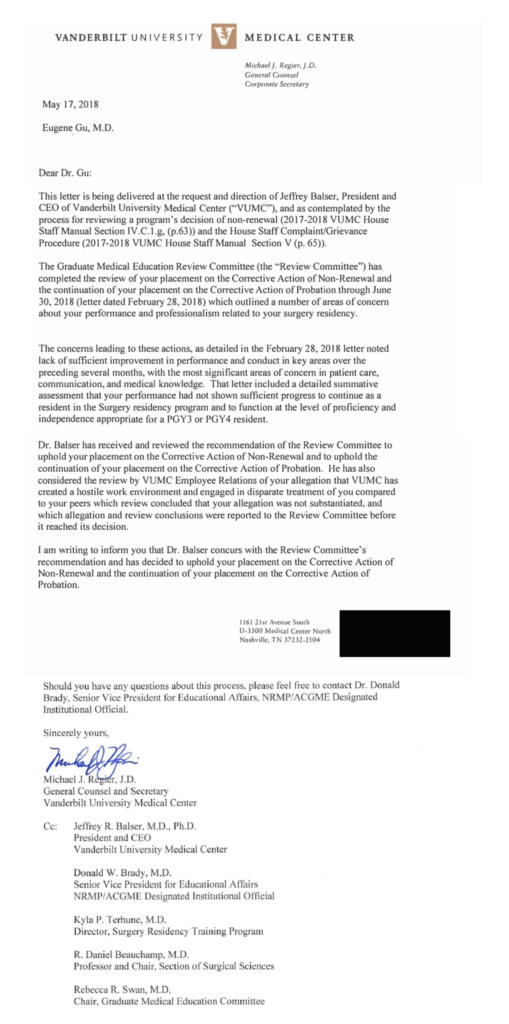The young doctor was one of seven Twitter users who sued Trump in federal court claiming the president had violated First Amendment rights by blocking them from commenting on his tweets. The lawsuit, seen widely as a free speech debate for the social media age, ended with a ruling against Mr. Trump. Gu’s suit became controversial at Vanderbilt .
Even after Dr. Gu deleted the tweet at Vanderbilt’s request, at least two patients refused to let him treat them. The Tweet was not Gu’s only offence. Dr. Gu also spoke publicly about what he claims was a racially-motivated attack on hospital grounds during the first year of his residency. Gu alleges he was attacked by a white man who shouted racial slurs in the hospital parking garage. The man followed him into the hospital before police intervened, he said. Gu said both he and the man were arrested. Charges were later dropped against both of them.
“I don’t think Vanderbilt likes people to know that racism exists in these walls,” Gu said. “But we are living in an era now that is scary … especially in Nashville. Nashville is a little liberal, but it’s surrounded by very conservative areas, and that bleeds into the lives of minorities here.”
Gu has been controversial in Tennessee for another reason. In 2012 Eugene Gu started a biotech company devoted to growing organs from stem cells. Although Gu’s company, Ganogen, had ceased work when he started his residency in 2015, a conservative group made undercover videos intended to expose corruption and charges of murder against Planned Parenthood. Gu was subpoenaed as CEO of his company by the United States House Select Investigative Panel on Planned Parenthood following the Planned Parenthood 2015 undercover videos controversy. Not a good thing in Tennessee.
Vanderbilt said in an email statement Friday that the decision not to renew Gu’s contract was not a result of criticism of Trump, his lawsuit, or his public opposition to racism. The hospital said that all disciplinary actions against Gu relate to his work performance and professionalism. This seems surprising given Dr. Gu’s record. He is — was — a resident at Vanderbilt University’s highly selective surgical residency. Eugene Gu’s resume is striking: valedictorian in high school, undergraduate degree from Stanford, medical degree from Duke, surgical residency at Vanderbilt and starting his own stem cell therapy company in 2012.
Vanderbilt stated that the leave was based on Vanderbilt’s policies, including those concerning use of social media.

 Medical Center. Vanderbilt ended Gu’s residency, the five-year program required to become a surgeon.
Medical Center. Vanderbilt ended Gu’s residency, the five-year program required to become a surgeon.